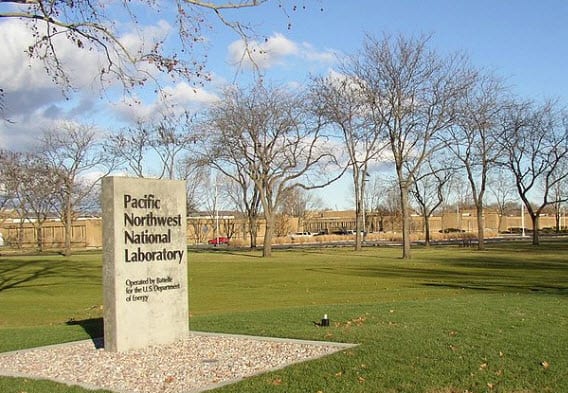
Efficient hydrogen fuel production may be unlocked by new catalyst
June 19, 2012Team of researchers aims to improve hydrogen fuel production
Researchers from the Department of Energy’s Pacific Northwest National Laboratory (PNNL) have been experimenting with a new kind of catalyst that can be used to produce hydrogen fuel. Lead by chemist John Roberts of the PNNL Center for Molecular Electrocatalysis, researchers believe that the catalyst can be made to produce hydrogen gas at a more rapid pace than any other catalyst currently available. This is accomplished through the use of an acidic ionic liquid.
PNNL team develops catalyst based off protein
The team of PNNL researchers has developed a nickel-based catalyst which they dissolve in a solution for the sake of accurate study. When the catalyst is dissolved, it is easier to examine, allowing researchers to pinpoint particular structures that will enable them to create more efficient catalyst materials. The catalyst used in this method was modeled after a protein known as hydrogenase, which is partly responsible for the bond between hydrogen atoms and electrons. Energy is stored in this bond, a fact that researchers have been hoping to exploit through their experiments.
New method can produce hydrogen fuel without loss of efficiency
Previous experiments have yielded lackluster results. Only when researchers introduced the catalyst to an acidic ionic liquid did they see promise for efficient and quick production of hydrogen gas. When water was added to the mixture, hydrogen gas was created at a rate of 53,000 molecules per second without any loss in terms of energy efficiency. The process used is easy to replicate, which could mean that highly effective hydrogen fuel production could be just around the corner.
Researchers to continue experiments to find improvements
The next step is to improve the results that the latest experiments have produced. Researchers will work to better the ratio of speed to efficiency for their hydrogen fuel production method. They will also continue investigating the way the nickel-based catalyst reacts with the ionic liquid in the hopes of better understanding the process and making improvements.
Related article(s) and resources:
http://phys.org/news/2012-06-ionic-liquid-efficiency-hydrogen-producing-catalyst.html



 With over 15 years of reporting hydrogen news, we are your premier source for the latest updates and insights in hydrogen and renewable energy.
With over 15 years of reporting hydrogen news, we are your premier source for the latest updates and insights in hydrogen and renewable energy.